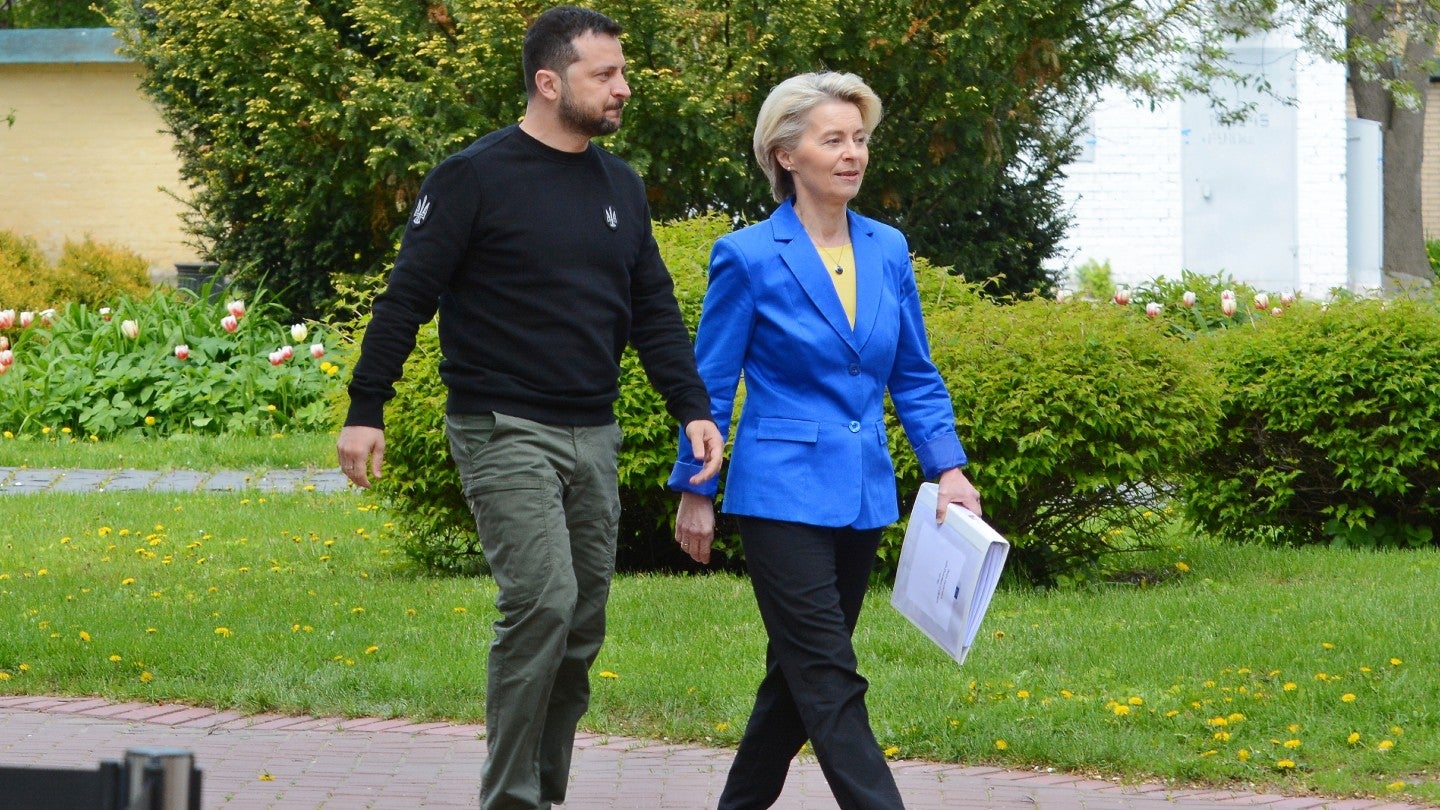
Ukraine took a step closer to EU membership yesterday (8 November 2023) when the European Commission recommended that formal negotiations on accession should begin.
Ukrainian President Volodymyr Zelensky hailed the decision as a “historic step”, while EU Commission President Ursula von der Leyen said “Ukraine has completed well over 90% of the necessary steps” to become an EU member.
Ukraine was granted official “candidate” status for the EU in June 2022 along with neighbour Moldova and Bosnia and Herzegovina.
Albania, Moldova, Montenegro, North Macedonia, Serbia and Turkey and are the other five EU candidates. The news is unlikely to have been well received in Ankara, as Turkey has sought EU membership since 1999 but has been repeatedly stalled, despite being one of the bloc’s key partners.
Most EU member states have expressed support for Ukraine’s accession, with the notable exception of Hungary.
When asked about the European Commission’s report, Hungarian Foreign Minister Péter Szijjártó said Ukraine is “not suitable for EU membership”, claiming it would embroil the alliance in conflict.
“Neither freedom of speech nor freedom of expression is respected there”, Szijjártó added, referring to Zelensky’s recent claims that Ukraine should not host elections while at war with Russia.
Like Turkey, Hungary has strong ties to Russia, with all three countries led by populist strongmen figures.
Strong support for Ukraine in Vilnius
The Baltic States have expressed strong support for Ukraine’s EU accession.
Lithuanian President Gitanas Nausėda has previously welcomed the European Commission’s recommendation to open formal EU membership talks with Ukraine and Moldova. Lithuania’s Ministry of Defence (MoD) said on X (formerly Twitter): “Ukraine belongs in the Euro-Atlantic family”.
The Lithuanian MoD told Army Technology that Vilnius’ total aid for Ukraine “amounts to more than one billion euros, or more than 1.2% of our GDP, half of which is military support”.
Alongside Poland, Ukraine and Lithuania operate under the Lublin Triangle, a regional alliance created to counter the threat posed by neighbouring Russia and Belarus. The grouping also advocates for Ukraine’s EU membership.
Lithuania’s support for Ukraine has surpassed diplomatic rhetoric.
Last month, Lithuania opened the largest infantry fighting vehicle repair site in the Baltic Region.
In total, the €12m ($12.6m) site has bays for the maintenance of 22 vehicles, including eight Boxer multi-role armoured vehicles, six trucks, four tracked vehicles and another four all-terrain vehicles.
Our signals coverage is powered by GlobalData’s Thematic Engine, which tags millions of data items across six alternative datasets — patents, jobs, deals, company filings, social media mentions and news — to themes, sectors and companies. These signals enhance our predictive capabilities, helping us to identify the most disruptive threats across each of the sectors we cover and the companies best placed to succeed.
Amendment: This article has been updated to remove incorrect information provided to Army Technology by senior Lithuanian officials of the presence of Vilkas/Boxer vehicles in Ukraine.



